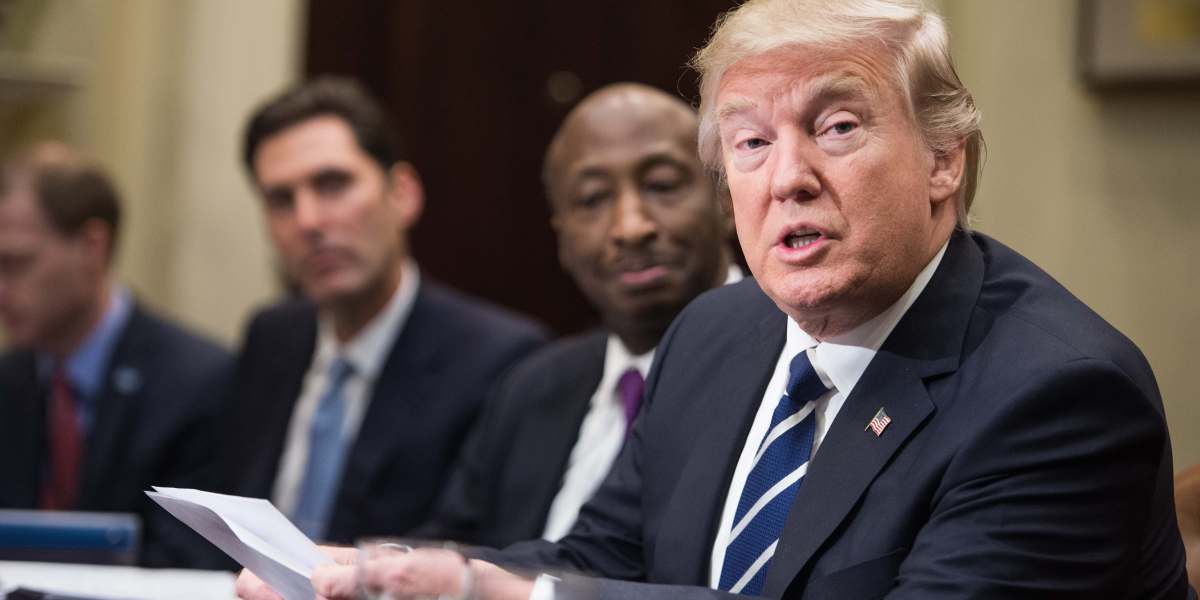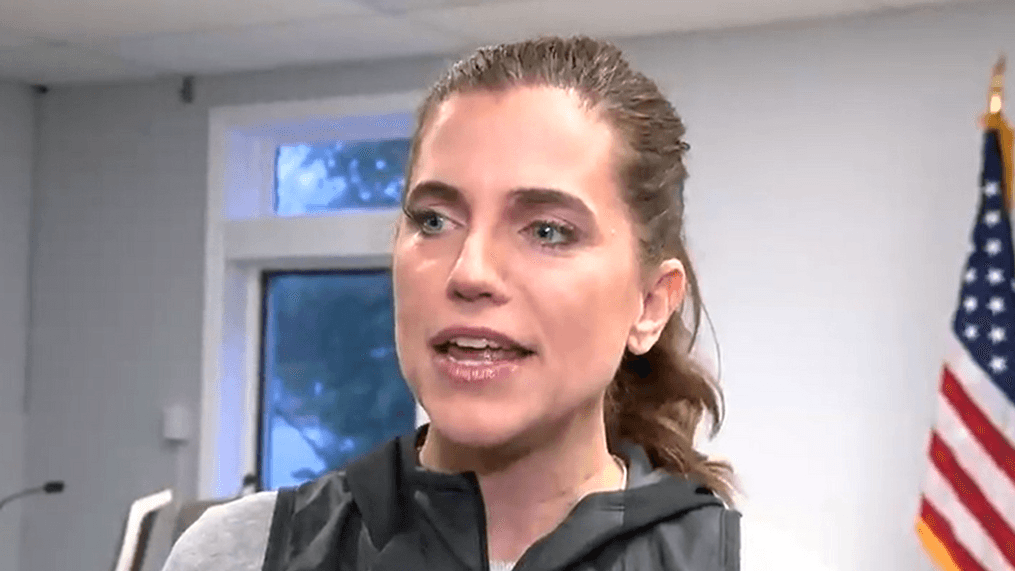Is Trump's FDA A Boon For Biotech? An In-depth Look

Table of Contents
The Gottlieb Era and its Impact on Biotech
Scott Gottlieb's tenure as FDA commissioner, from 2017 to 2019, was marked by a significant shift in the agency's approach to drug approval and regulation. His leadership significantly impacted the biotech landscape, leading to both praise and criticism.
Accelerated Drug Approvals
Under Gottlieb's leadership, the FDA saw a notable increase in the number of drug approvals. This acceleration was partly attributed to a greater emphasis on utilizing existing pathways designed for expedited review, such as the Breakthrough Therapy Designation.
- Examples of expedited approvals: Several cancer drugs and other life-saving medications received accelerated approval, bringing potentially life-saving treatments to patients more quickly.
- Increased use of Breakthrough Therapy Designation: This designation prioritized review of drugs with preliminary clinical evidence suggesting substantial improvement over existing treatments.
- Impact on timelines: The average review time for some drug applications was shortened, leading to faster market entry.
However, this speedier approval process also raised concerns. Faster approvals, while potentially beneficial for patients needing treatments urgently, could also mean less comprehensive review of long-term safety and efficacy data.
Focus on Orphan Drugs and Rare Diseases
Gottlieb prioritized the development of treatments for rare diseases, a significant area of unmet medical need. His initiatives aimed to incentivize pharmaceutical companies to invest in this challenging but crucial area.
- Specific programs and policies implemented: Initiatives focused on streamlining regulatory pathways and providing financial incentives for orphan drug development.
- Impact on patient access: Increased access to treatments previously unavailable for patients with rare diseases.
- Investment in research: The focus on orphan drugs spurred increased investment in research and development in this area.
This focus undoubtedly benefited patients with rare diseases, but questions remain regarding the overall cost-effectiveness and sustainability of such initiatives.
Increased Regulatory Efficiency
Gottlieb sought to streamline the drug approval process through various initiatives aimed at reducing bureaucratic hurdles and leveraging technology.
- Examples of changes made: Improvements to the pre-submission process, increased use of electronic submissions, and improved communication between the FDA and drug developers.
- Use of technology: The adoption of new technologies aimed to enhance the efficiency of the review process.
- Reduction in bureaucratic hurdles: Efforts were made to simplify the regulatory requirements, reducing the administrative burden on drug developers.
These changes, while aimed at improving efficiency, also sparked debates about potential trade-offs between speed and thoroughness in the review process.
Criticisms of Trump's FDA Approach
Despite the positive aspects of Gottlieb's tenure, the Trump administration's approach to the FDA faced significant criticism.
Concerns about Safety and Efficacy
Critics argued that the push for faster approvals potentially compromised safety and efficacy. The emphasis on speed raised concerns about the thoroughness of the review process.
- Specific examples of drugs approved under scrutiny: Some critics pointed to specific drug approvals as examples of potentially inadequate review.
- Concerns from patient advocacy groups: Patient advocacy groups expressed concerns about the potential risks associated with accelerated approvals.
- Potential long-term consequences: The long-term consequences of potentially less rigorously reviewed drugs remain a subject of ongoing debate.
The balance between timely access to potentially life-saving therapies and ensuring robust safety and efficacy standards remains a complex challenge.
Influence of Political Pressure
Concerns were raised about potential political interference in FDA decision-making during the Trump administration. This raised questions about the agency's independence and transparency.
- Examples of potential political pressure: Allegations of political influence in specific drug approval decisions fueled concerns about the agency's objectivity.
- Impact on agency independence: Concerns that political pressure undermined the FDA's scientific independence.
- Concerns about transparency: Calls for greater transparency in the drug approval process to enhance public trust.
Maintaining the FDA's independence from political influence is crucial for preserving public confidence in its decisions.
Impact on Generic Drug Approvals
Trump's FDA policies also impacted the approval of generic medications, a critical factor in controlling healthcare costs.
- Changes in policies: Changes in policies potentially affected the speed and efficiency of generic drug approvals.
- Impact on drug prices: The effects of these policies on drug prices and competition among pharmaceutical companies remain a subject of ongoing research.
- Effects on competition: The impact of these policies on competition within the pharmaceutical market requires further analysis.
The availability and affordability of generic drugs are critical for ensuring accessible healthcare.
Long-Term Effects on the Biotech Industry
The legacy of "Trump's FDA" on the biotech industry is complex and multifaceted.
Sustained Innovation or Short-Term Gains?
The long-term impact of the Trump administration's policies on biotech innovation remains to be seen.
- Long-term effects on investment: The impact of these policies on long-term investment in biotech research and development requires ongoing assessment.
- Changes in industry practices: The changes in industry practices resulting from the altered regulatory landscape need further study.
- Impact on future drug development: The implications for future drug development are still unfolding and require careful monitoring.
Future Regulatory Landscape
The current FDA's approach differs from the Trump administration's policies in several key aspects.
- Comparisons and contrasts: A careful comparison and contrast of the two administrations' approaches are necessary for a comprehensive understanding.
- Potential future changes: The future regulatory landscape and its potential changes will significantly shape the biotech industry.
- Projections for the industry: Future projections for the biotech industry will depend on the evolving regulatory environment.
Conclusion
The impact of Trump's FDA on the biotech industry is a complex issue with both positive and negative aspects. While the Gottlieb era saw an increase in drug approvals, potentially accelerating access to life-saving treatments, concerns remain about the potential compromises on safety and efficacy, as well as the influence of political pressure. The long-term effects on biotech innovation and the future regulatory landscape require continued observation and analysis. Further research and discussion are crucial to fully understand the long-term consequences of the Trump administration's impact on the FDA and the biotech industry. Continue the conversation about the future of "Trump's FDA" legacy and its influence on biotech regulation.

Featured Posts
-
 Adeyemi Praesentiert Sich Stylish In Dortmund
Apr 23, 2025
Adeyemi Praesentiert Sich Stylish In Dortmund
Apr 23, 2025 -
 South Carolina Voters Confrontation With Rep Nancy Mace Details Emerge
Apr 23, 2025
South Carolina Voters Confrontation With Rep Nancy Mace Details Emerge
Apr 23, 2025 -
 Cybercriminal Nets Millions Through Executive Office365 Compromises
Apr 23, 2025
Cybercriminal Nets Millions Through Executive Office365 Compromises
Apr 23, 2025 -
 Brands Scramble For New Homes After Hudsons Bay Store Closures
Apr 23, 2025
Brands Scramble For New Homes After Hudsons Bay Store Closures
Apr 23, 2025 -
 Stylisher Auftritt Adeyemi Etabliert Sich Beim Bvb
Apr 23, 2025
Stylisher Auftritt Adeyemi Etabliert Sich Beim Bvb
Apr 23, 2025
